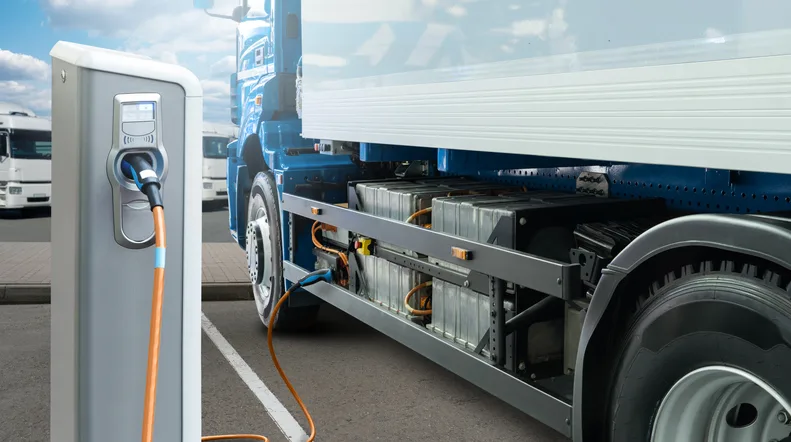Road freight energy needs could come as a shock without planning and collaboration, says Logistics UK
Decarbonising road freight needs a collaborative approach, with the amount of power required to electrify the UK’s road freight vehicles estimated to be 32 TWh (terawatt hours) – substantially more electricity than is used in Scotland each year.

THESE FINDINGS are revealed in Logistics UK’s in-depth report Exploring Current and Future Energy Demand from Road Freight that explores the total current and future energy demand from road freight and provides initial insights on where and when energy infrastructure will be needed.
The report, produced on behalf of the Department for Transport’s Freight Energy Forum, is part of a broader project to understand how much energy is required to support the net zero transition for the whole logistics sector. Using official statistics and surveying the real-world experiences of road operators, Logistics UK’s report provides a snapshot of the road freight industry as it continues its journey to net-zero.
Analysing petrol and diesel use, the report shows how, in 2021, UK road freight used energy equivalent to 32 TWh and Deputy Director – Policy at Logistics UK Michelle Gardner comments: “The calculation helps demonstrate the potential scale of future energy demand for road logistics and shows why planning and collaboration between the logistics and energy sectors is essential.”
The report shows the vast majority of transport operators envisage that the charging of HGVs (76.7%) and logistics vans (79.1%) will take place at depots or operating sites and adequate energy infrastructure at these locations will be critical. However, a comprehensive public charging network to support en route or overnight charging is still essential as, according to Logistics UK, there is an immediate need for substantial grid upgrades to address current delays to connections. Respondents identified the need for charging infrastructure in remote areas in addition to main road arteries, service stations and ports – something that the logistics sector hopes will develop faster now ports are recognised as ‘foundational’ in the Industrial Strategy and eligible for faster grid connections and reduced electricity costs.
According to the report, one quarter (25.9%) of respondents have begun making changes to their operations and 20% are “on track” to decarbonise by 2050, with nearly 40% using zero tailpipe emission technologies or low carbon fuels (LCFs), and Ms Gardner suggests that this demonstrates many companies are in the early stages of their decarbonisation journey.
“There is still a lot of uncertainty over what will be the dominant technology,” she says, “and commercial viability will always be the main driver for businesses. There is a reluctance to commit to any one solution, such as electrification, if hydrogen could become a viable alternative and the sector needs greater clarity and support from government to give it the confidence to invest.
“Our report highlights a degree of uncertainty within the sector and to help address this we are calling for a national logistics energy infrastructure roadmap. This will help align grid, energy, and vehicle transition timelines ensuring freight is integrated into national energy planning. We are also urging that freight hubs and depot facilities are prioritised for grid connections and the government does not continue to overlook the role of LCFs, and develops a long-term, stable policy environment to support the scale-up of LCFs such as HVO and biomethane, which can provide immediate Green House Gas emission savings.”
Copies of the report Exploring current and future energy demand from road freight can be downloaded here.






